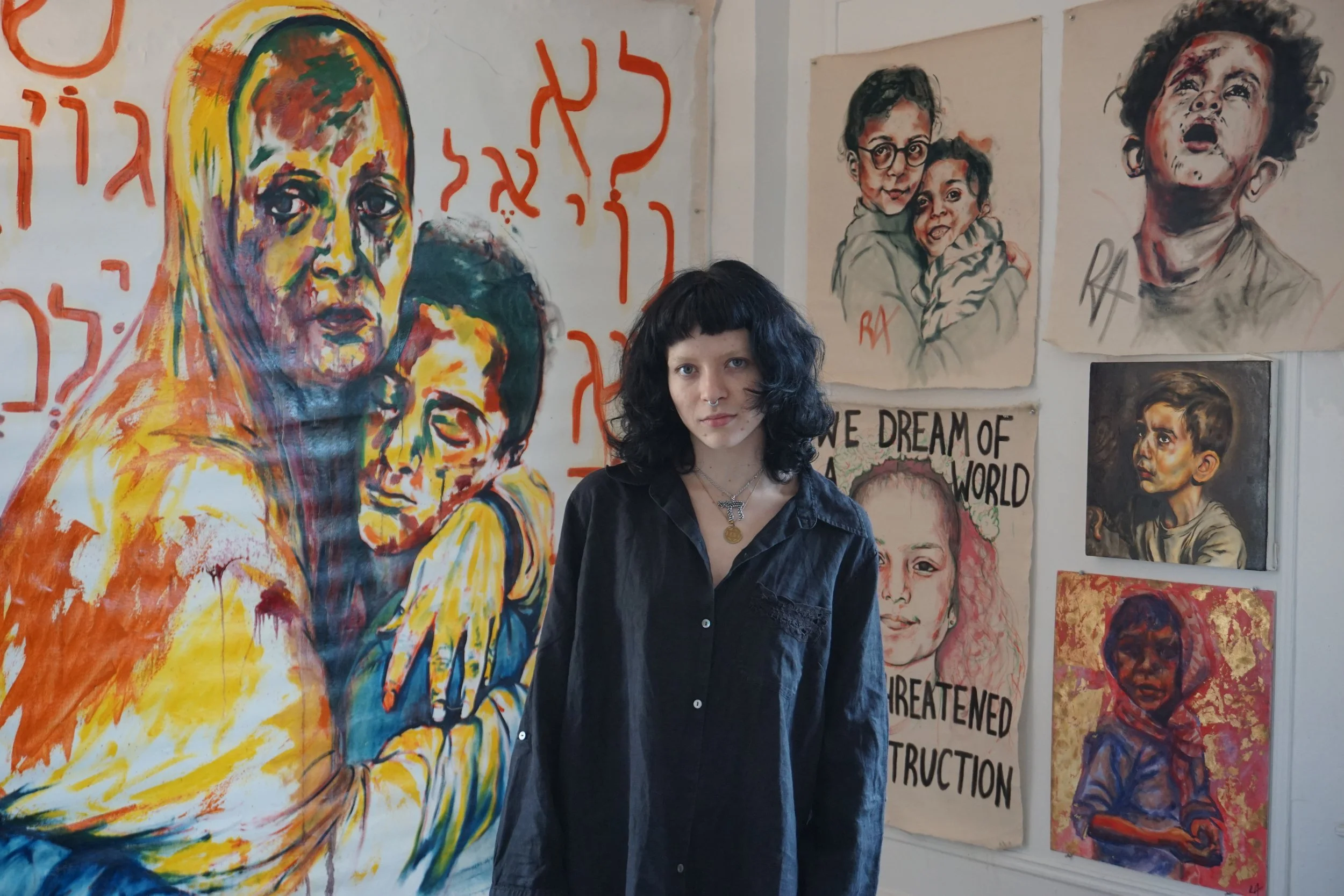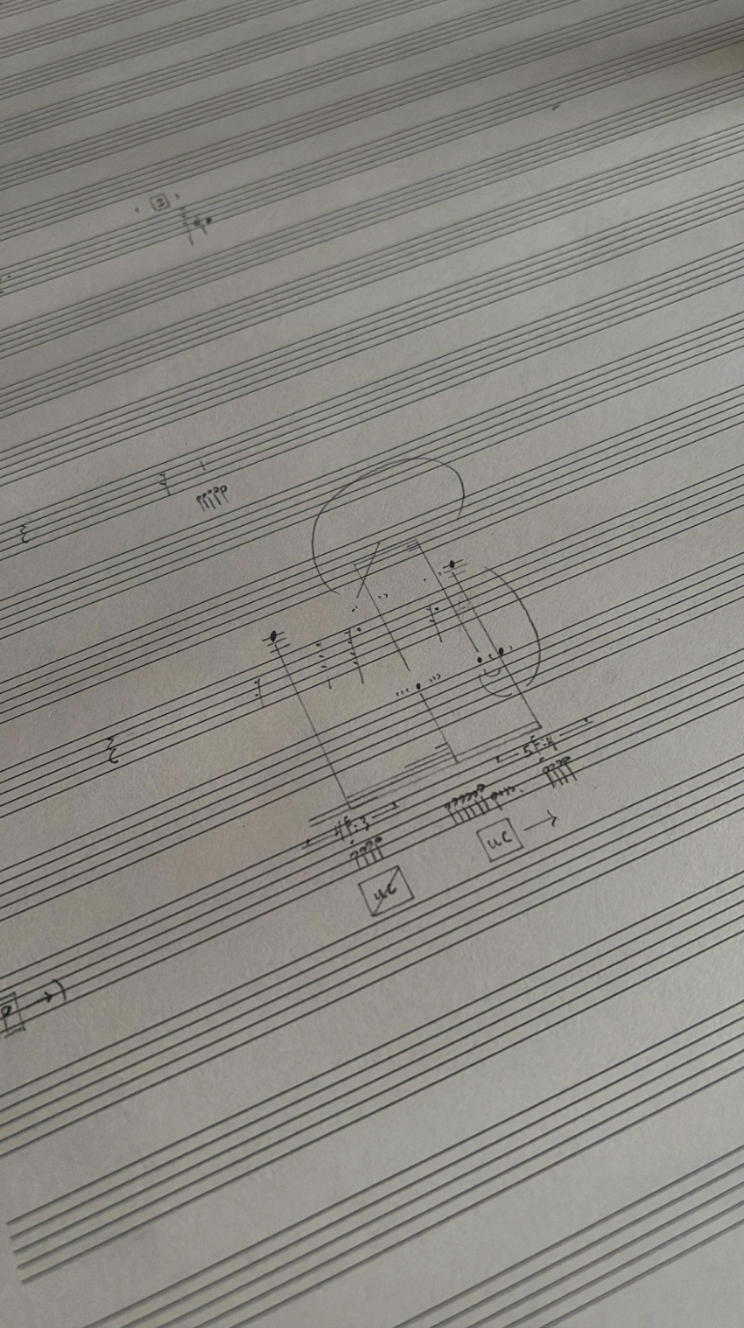Feature by Alexa Zacarias
Photos by Harper Rosenberg


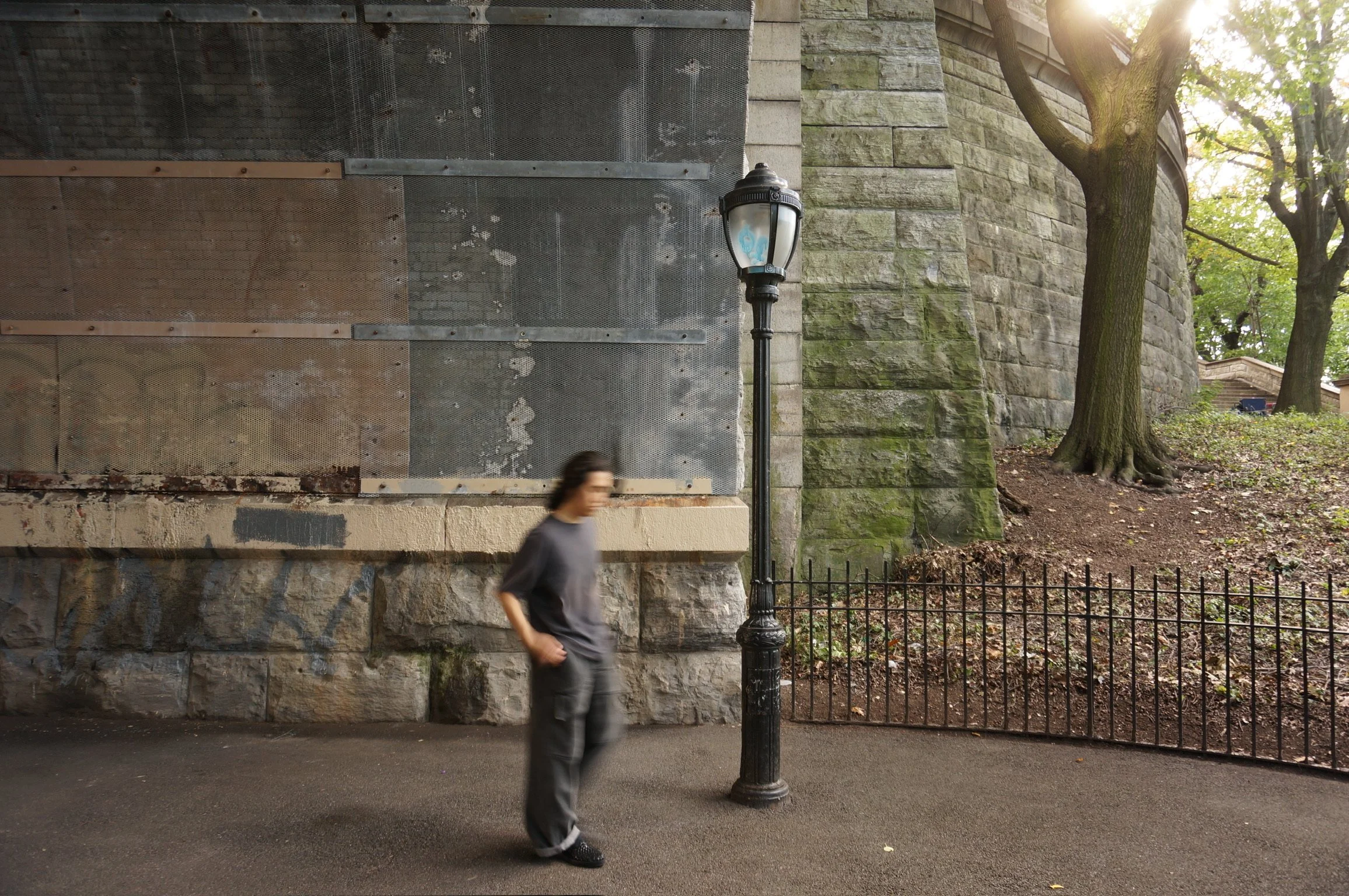
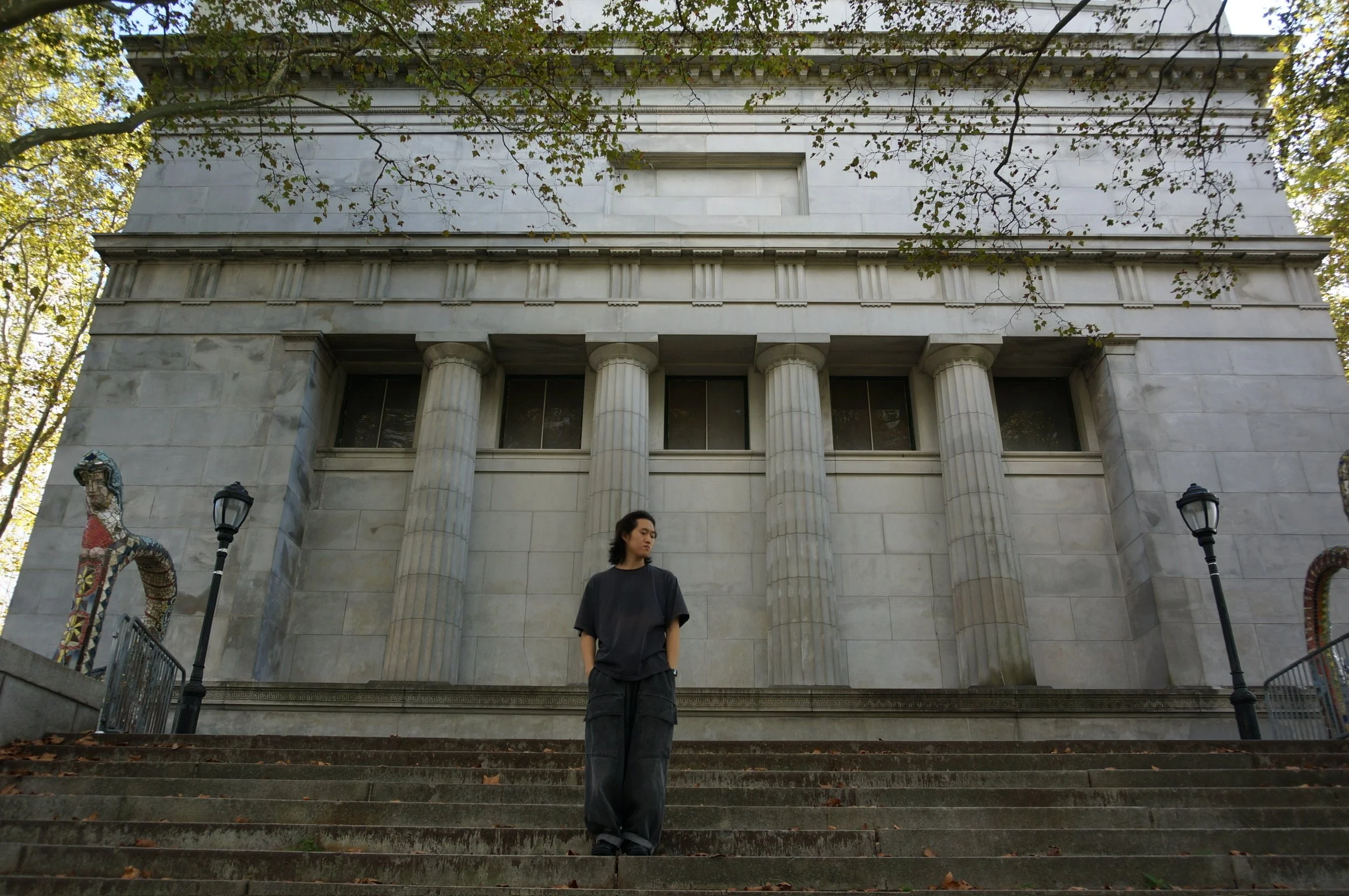
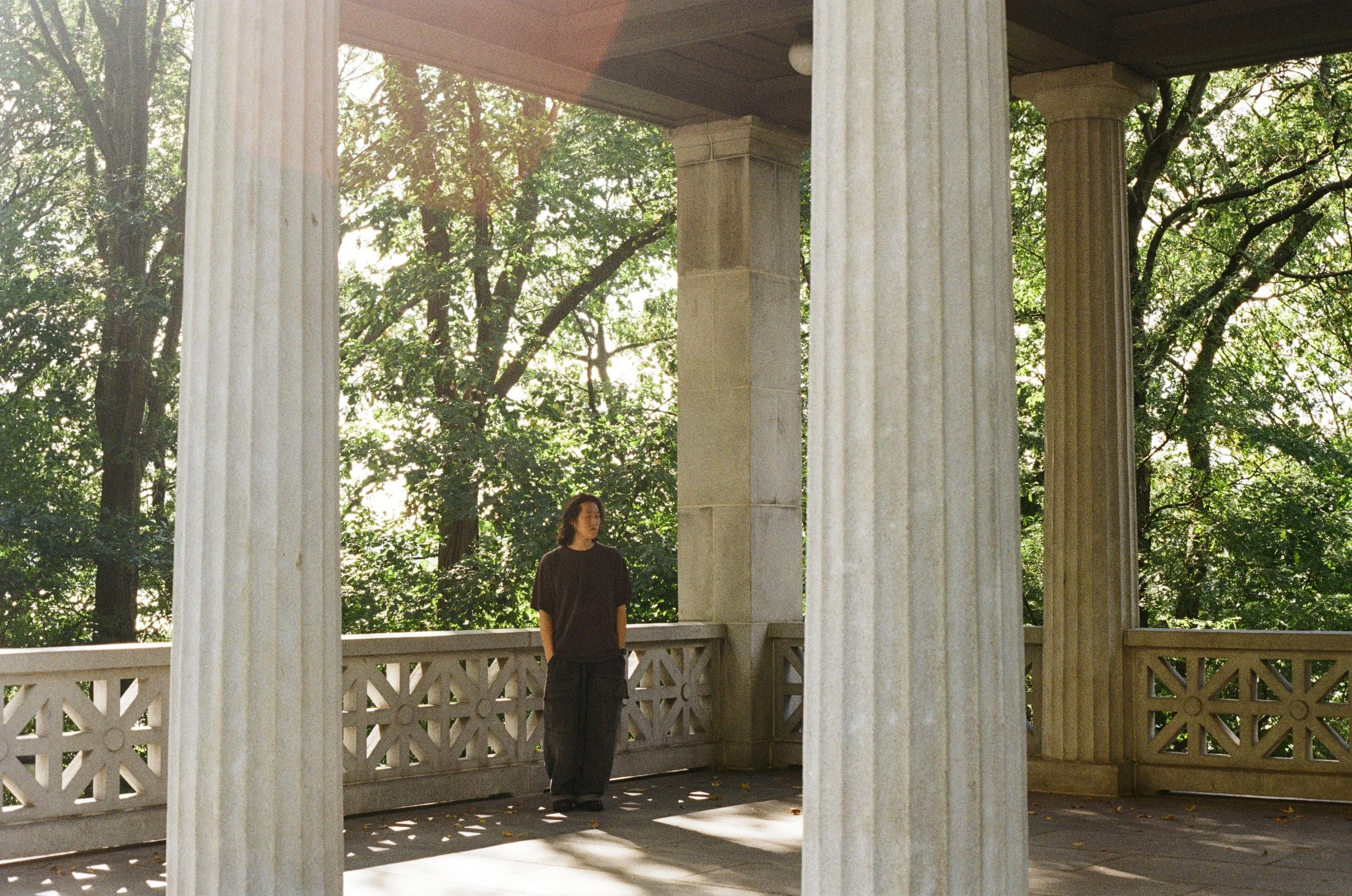
Won Jong CC’26 is a South Korean composer whose works have been performed across North America, Europe, and Asia. He moved to New York City from Seoul, Korea, where he is currently pursuing a degree in Composition at Columbia College. Won serves as Artistic Director of the Columbia University Bach Society, as well as having received the 2025 Boris and Eda Rapoport Prize, an honorable distinction in music composition from Columbia University.
Won Jong sat across from me, criss-crossed on a swiveling chair, on a relatively sunny day in New York; his East Campus suite illuminated by the strings of light gliding in through his window. While he gathered the materials he wanted to showcase throughout the interview, I took the opportunity to look around.
His set-up was simple, almost quaint. His workspace (his desk) had a ceramic lamp surrounded by a couple of pens, ink, and a penguin plushie hidden behind a light-blue mug and a ruler. Handwritten compositions were neatly placed on the right side of the tabletop, with a half-read book on a stand right next to them. The inscriptions on the staff paper were subdued, hushed, willed with incredible detail. There were notes, of course, with curves and small, almost unreadable phrases dispersed throughout the page. I then headed to his bedside table, his diffuser dispelling citrus-fragranced air into the soothing atmosphere of his room, a couple of essential oil containers tidily placed around each other, along with three bottles of cologne. Everything seemed to have its own place. The oils on the table, writing materials in the writing space, books stacked onto one another on the shelf, and Won in the middle of it all, his reflection present in every corner of the tiny space.
“desk”
Won grew up in the bustling Seoul, Korea, living in a tranquil area near a mountain along with his grandmother, and graduated from a high school class of thirty students. Won began his musical prospects as a pianist and a percussionist, but as an introvert, he hated the stage, proclaiming, “I think what I dislike the most about performing is the fact that, you know, music is a temporal art form, right? And you're essentially judged on a singular strip of time.” Over time, his love for composing grew and diverted him from performing, as it gave him more agency over the rendition. He became the orchestrator of alluring pieces of music from the shadows, sitting in the corner of the concert hall surrounded by his scores. He states that “You can judge a piece of music independent of the performance.”
Leaving behind the frenzy of Seoul and welcoming the similar buzzing of New York, Won takes it upon himself to find pockets of silence and stillness between the chaos, just like he did back home and in his musical career. Much like his pieces, Won is sparse, self-contained, filled with long moments of quietude. However, Won isn’t a solitary creature, despite the stillness of his music. He finds time to go to art galleries with his friends, always with a smile and a double-handed wave ready for anyone who bumps into him around campus. His desk carries the weight of all his compositions and every piece he’s ever created: waking up at 7:30 AM every morning and taking some time to practice his creative pursuits before class. His music doesn’t arrive pre-designed, but it unfolds like something tenuous you find in the dark— with the essence of discovery making defeat inevitable, and therefore more human. To Won, failure is not the opposite of art, but its very condition.
“fragment of a score”
Won describes one of his “most stubborn qualities” to be his necessity to compose and engrave his score on paper, with meticulous attention to detail. He proceeded to show me a recent engraving of a piece titled, “Edison Kinetoscopic Record of a Sneeze - antiphon in two parts,” a composition inspired by the 1894 black and white silent film of Fred Ott’s Sneeze, the first motion picture to be copyrighted in the U.S. (fun fact, the snapshots of the film also happen to be Won’s computer wallpaper). Although I have little knowledge of music composition, I had never seen an engraving quite like this one, with the spacing so intentional, squiggly lines between notes, and unusual arrows. The manual engraving is a depiction of Won’s artistry and creativity, allowing him to fully feel and engage with his material as he writes it. This process allows Won’s work to “look closer to what it sounds like,” teetering on tension and audibility. Some may call this process inefficient, but to quote Won, “If I wanted efficiency, I’d be an economist.”
“edison sneeze score”
When asked if he had to write the soundtrack for the life of a figure–dead, alive, or fictional–who would he choose, Won mused about it for a bit, staring deeply at his screen, until finally he screamed, “Fred Ott, the sneeze guy!” When asked why he would give such a bizarre answer, Won gave a cheeky smile and said, “I would love to meet this man. He just seems so interesting. That’s my little cop out answer.” I totally think this was cheating, as he has already composed a piece about him (it was performed recently at the Maison Française). Oh well, he’s the artist, right? Whatever he says goes.
We moved on to the actual listening experience of his pieces after looking through a couple of other scores. It was then that I remembered my first listen to Won’s “small room: anno 1130 aedificata, Eidyn,” played by a string quartet. I had to bring my phone up to my ear, sitting on my bed, careful not to ruffle my blanket, and trying to tune out the outside screeches of a cat from my window. I couldn’t truly connect. Won explained that his music was never meant to be listened to on a recording, but that it:
“...works better in live performance because with silence and such fragile material, in a live situation you’re sitting there in the audience and you become hyper aware of every single movement and little creak and sound that you’re making… That links to the idea of silence as energy. There’s a real tension to it. But on a recording, no matter what you yourself do, you’re not going to influence the recording, because it’s already fixed. So I think a lot of that energy is lost.”
We watched a video of this performance played live, settled in complete reticence, aware of any sudden movements we made– the squeaking of the wheels of the chair he was sitting on, the soft rubs of my feet against the floor– and I understood what was meant by “fragility” in this piece. Throughout my listening and watching of the video, I was uncomfortable the entire time and extremely keen on not only the piece, but also how my surroundings added to it. Conscious of the long pauses of the musicians throughout the performance, the gaps in the production gave me time to take everything in. Though Won acknowledges how one might think of fragility as a material term, he thinks that it applies to gestures. He frames it as delicacy in music built from the possibility of failure, though he has yet to come up with a more definite definition of what it signifies for his pieces.
Currently, Won is developing this idea further in a creative project for the ensemble “Hypercube,” consisting of a quartet of saxophone, electric guitar, piano, and percussion. It’s called… wait for it…“parchment grew hair, folio 21R,” and it’s inspired by Won’s recent interest in medieval manuscripts, medieval music, and the process by which parchment is made. Fascinated by the notion of craft, Won devoured a book of medieval scriptoriums, where they talk about the process of making parchment. Parchment is made up of animal skin dipped in lime and water solution, dried, and stretched for writing. We imagined the scribe taking notes on this process, like Won, sitting at a desk for hours a day, an observer of technique. Bored, the scribe would write small notes on the sides of the parchment, with one of them being, “the parchment is hairy.” As soon as Won read this, he knew what the title of his new composition would be.
“parchment grew hair score”
Like a recording fails to capture the full scope of Won’s work, neither can an article. Maybe that’s the point: to attempt to write about Won as an artist and a human, knowing he himself is as tenuous as his music, slipping through the cracks, but firm in his quiet strength. Won’s work asserts that fragility isn’t a weakness– but a condition of living. To listen to him is to accept that nothing is everlasting, and that one must exist in the discomfort of the present. His work resists being captured despite its stillness, insisting on being heard in person, in a room, surrounded by others, following the musician’s every move, engaging between the space of sound and its petering out. Orchestrated from the comfort of his citrus-scented room, silence becomes charged, an invisible collaboration between the performers and audience




